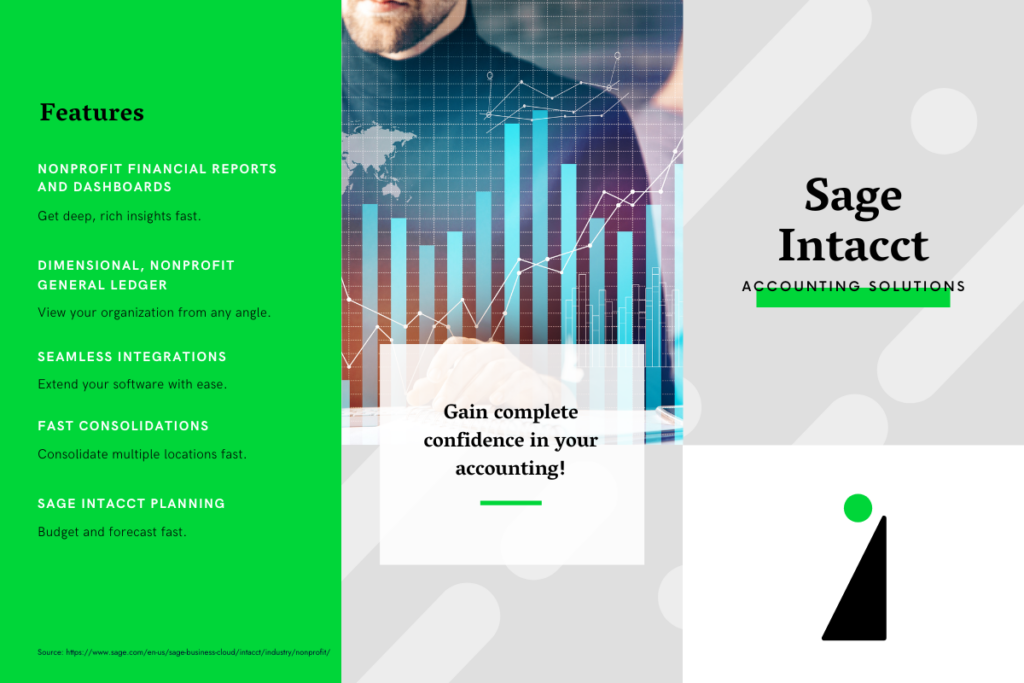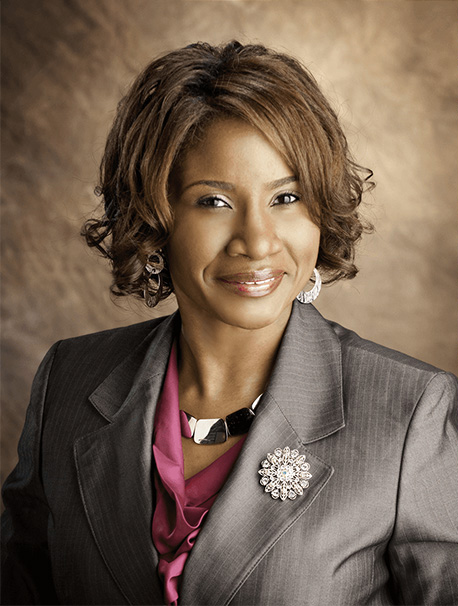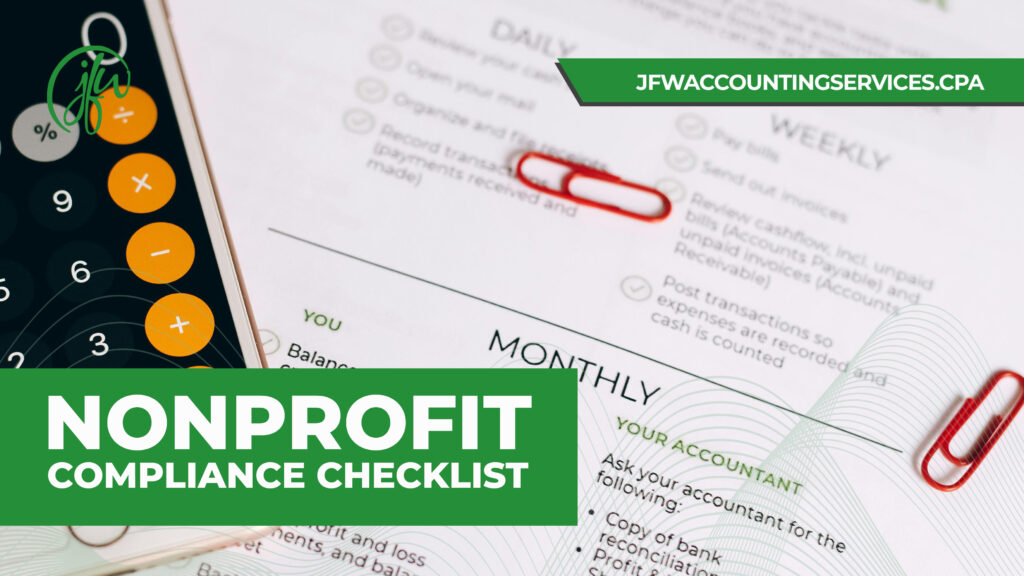The nonprofit compliance checklist serves as a vital tool to address what can often be perceived as an unseen burden—persistently present and requiring ongoing attention and resources amidst daily operations. A missed filing, an overlooked policy, or an incomplete report may rapidly escalate into penalties, audits, or even the revocation of tax-exempt status. Such outcomes can hinder an organization’s capability to fulfill its mission and uphold public trust.
Merely adhering to laws and being on top of your paperwork does not comprise the full meaning of compliance. It involves establishing trust, safeguarding the organization’s reputation, and ensuring access to essential funding. Hence, Understanding the relevant regulations and implementing clear policies build a robust foundation vital for a nonprofit organization’s continued success.
In this article, we will outline a practical and easy-to-understand nonprofit compliance checklist, answer common questions, and explore how outsourced accounting services can help streamline your compliance efforts.
Understanding the Basics: What is Compliance in a Nonprofit?
Compliance is about more than meeting legal requirements; it’s also about fostering accountability, transparency, and trust—key pillars of a successful and sustainable nonprofit. Let’s start by explaining what compliance means for your organization and why it’s essential to your mission.
Compliance in a nonprofit means adhering to federal, state, and local laws, as well as ethical and operational best practices that govern tax-exempt organizations.
To demonstrate accountability, you need to comply with IRS regulations, maintain state registrations, and ensure transparent financial reporting. Strong organizational policies, such as conflict of interest or whistleblower policies, further reinforce ethical operations and public trust.
Beyond avoiding penalties or loss of tax-exempt status, compliance helps nonprofits in securing grants, maintain donor confidence, and sustain financial health. With a clear, systematic nonprofit compliance checklist, you and your team can stay organized, aligned with regulations, and focused on your mission-driven goals.
With a clear understanding of what compliance entails and why it’s vital to your nonprofit’s success, the next step is knowing how to stay on top of it all. Compliance requires attention to multiple areas, from recordkeeping to fundraising, each with its rules and responsibilities. Let’s delve into the key considerations to help your organization maintain accountability, protect its tax-exempt status, and build long-term trust with stakeholders.
Key Considerations for Nonprofit Compliance Checklist
To stay on track, focus on these critical areas:
Proper Recordkeeping & Governance
Maintained bylaws, meeting minutes, and board resolutions. Engage your board actively to ensure ethical oversight and accountability. The board sets the tone for compliance and ensures that the organization’s policies and practices align with its mission and values.
IRS Requirements
File Form 990 annually, meet deadlines and keep up with state-level charitable registration renewals. Avoid private inurement and self-dealing issues.
Financial Reporting
Track restricted and unrestricted donations separately, monitor grants and prepare timely financial statements. Regular audits are key to financial transparency.
Employment & Payroll Compliance
Ensure proper classification of employees and contractors. File payroll taxes accurately and on time.
Fundraising Compliance
Register for charitable solicitations in states where you operate, and ensure transparency around donor-restricted funds.
Proactively addressing these areas safeguards your nonprofit’s reputation and allows you to concentrate on driving your mission forward. A strong understanding of key compliance areas lays the groundwork for effective nonprofit management, but putting this knowledge into action requires a structured approach.
A detailed checklist can be a practical tool for maintaining compliance and reinforcing accountability across your organization. Explore a comprehensive compliance checklist to keep your nonprofit on track and aligned with its mission.
How to Keep Your Organization in Check
A systematic approach can prevent costly oversights and reaffirm your organization’s accountability. Here’s a comprehensive nonprofit compliance checklist to guide you:
Governance and Recordkeeping
- Review and update governance documents annually, including bylaws, articles of incorporation, and conflict of interest policies.
- Maintain accurate and accessible board meeting minutes and resolutions.
- Keep a current list of board members, their roles, and terms of office.
- Create a document retention and destruction policy to ensure the proper maintenance of financial records for at least seven years.
IRS and State Requirements
- File Form 990 or 990-EZ annually and meet state registration renewal deadlines.
- Ensure compliance with IRS executive compensation guidelines and political activity restrictions.
- Monitor unrelated business income to ensure it aligns with your mission.
Financial Management
- Conduct annual financial audits or reviews.
- Approve and document an annual budget through the board of directors.
- Separate restricted and unrestricted funds and track grant usage meticulously.
- Maintain internal controls for check signing, bank reconciliations, and financial reporting.
Employment and Payroll Compliance
- Correctly classify employees and independent contractors according to federal standards.
- File payroll taxes and unemployment insurance payments on time.
- Provide personnel files, an employee handbook, and a whistleblower policy.
Fundraising and Donations
- Register for charitable solicitations in all applicable states.
- Acknowledge donations over $250 in writing and comply with IRS guidelines for vehicle donations.
- Maintain transparency and documentation for donor-restricted funds.
Insurance and Intellectual Property
- Ensure adequate coverage, including general liability and directors/officers’ insurance.
- Renew trademarks, patents, or copyrights as required and confirm permissions for using intellectual property.
Board and Organizational Oversight
- Regularly evaluate the executive director’s performance.
- Ensure board members actively oversee financial and operational activities.
- Revoke financial authority from former staff or board members promptly.
This checklist is a helpful tool to ensure that nonprofit organizations operate ethically, transparently, and sustainably. Compliance necessitates more than mere adherence to regulations; it also requires strategic financial planning to achieve long-term sustainability. A fundamental aspect of effective financial management involves determining the appropriate level of cash reserves that a nonprofit should maintain.
Striking an optimal balance between financial security and responsible stewardship is essential for cultivating trust with stakeholders and furthering the organization’s mission.
How Much Money Can a 501(c)(3) Have in the Bank?
The IRS does not impose specific limits on the amount of cash a 501(c)(3) nonprofit organization may retain in its reserves. However, nonprofits must balance ensuring financial security with demonstrating accountability to donors, stakeholders, and regulatory bodies. Holding substantial reserves without a clearly defined purpose may prompt inquiries regarding the appropriate utilization of funds. Conversely, inadequate reserves could expose the nonprofit to potential financial challenges or emergencies.
Best practice guidelines recommend that nonprofits maintain a prudent reserve of approximately three to six months of operational expenses to ensure stability during uncertain periods and support strategic initiatives.
Your board should provide comprehensive documentation detailing the rules for maintaining significant cash reserves, including plans for capital improvements, program expansions, or emergency funds.
Accurate financial reporting is critical for effective reserve management. Nonprofits may utilize tools such as Sage Intacct to obtain real-time balance sheets and cash flow analyses, which assist in tracking and justifying their reserves. Engaging an outsourced accounting service can further ensure compliance and enhance transparency, enabling organizations to maintain optimal reserves while effectively advancing their mission.
Role of Outsourced Accounting Services & Sage Intacct
Accountants are the custodians of compliance. Every entry we record is grounded in historical facts and aligned with these standards. This disciplined approach ensures that the financial statements we produce empower leaders to make informed, impactful decisions—the kind that drives success and transformation.
With this in mind, outsourcing your accounting department is a strategic step toward growth. Entrust your finances to professionals who understand the intricacies of accounting and leverage the right tools to elevate your financial management.
After all, even the greatest of leaders need the right tools—just as King Arthur relied on Excalibur.
Not all accounting firms utilize cutting-edge technology like Sage Intacct, a cloud-based solution tailored for modern nonprofits. With its powerful features, Sage Intacct is an indispensable tool transforms financial management:

Partner with experts who combine their knowledge with the best tools available to help your organization thrive.
Conclusion
With outsourced accounting services alongside Sage Intacct’s innovative technology, nonprofits can achieve seamless compliance and financial management, empowering them to thrive.
Are you ready to transform your compliance processes and ensure your nonprofit aligns with regulations? Staying compliant is crucial for advancing your mission and sustaining your organization’s impact on the community. Let’s work together to ensure your nonprofit remains a pillar of trust and excellence.

Jo-Anne Williams Barnes, is a Certified Public Accountant (CPA) and Chartered Global Management Accountant (CGMA) holding a Master’s of Science in Accounting (MSA) and a Master’s in Business Administration (MBA). Additionally, she holds a Bachelor of Science (BS) in Accounting from the University of Baltimore and is a seasoned accounting professional with several years of experience in the field of managing financial records for non-profits, small, medium, and large businesses. Jo-Anne is a certified Sage Intacct Accounting and Implementation Specialist, a certified QuickBooks ProAdvisor, an AICPA Not-for-Profit Certificate II holder, and Standard for Excellence Licensed Consultant. Additionally, Jo-Anne is a member of American Institute of Certified Public Accountant (AICPA), Maryland Association of Certified Public Accountants (MACPA), and Greater Washington Society of Certified Public Accountants (GWSCPA) where she continues to keep abreast on the latest industry trends and changes.

